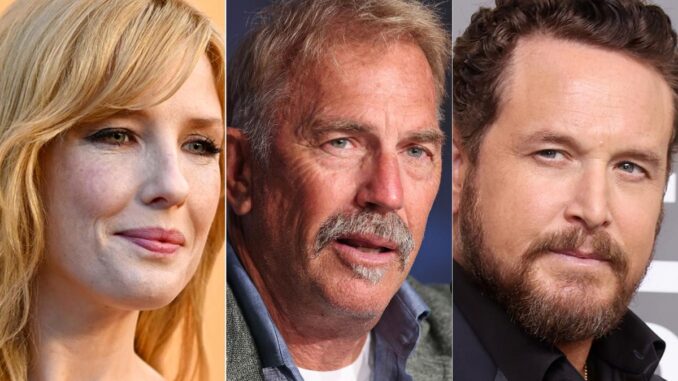
The Ever-Expanding Frontier: When an Ending is Just a New Beginning for the Yellowstone Franchise
In the perplexing landscape of modern entertainment, the concept of an "ending" has become increasingly fluid. A final episode often feels less like a definitive curtain call and more like a strategic pause, a chrysalis from which a new, larger creature will inevitably emerge. Nowhere is this phenomenon more vividly illustrated than with Taylor Sheridan’s neo-Western epic, Yellowstone. As the flagship series gallops towards its highly anticipated conclusion, the surrounding universe it spawned isn't winding down; it’s exploding, demonstrating that for a truly resonant story, an ending is merely a new beginning for the franchise.
From its very first panoramic shot of the Montana landscape, Yellowstone tapped into something raw and enduring in the American psyche. It wasn't just a show about cowboys; it was a modern-day Greek tragedy set against the backdrop of an untamed West constantly battling the encroaching tide of modernity. Kevin Costner’s John Dutton, the stoic patriarch, became a reluctant icon, a man fighting to preserve a way of life as much as his family's sprawling ranch. The series deftly wove together themes of land rights, indigenous sovereignty, political corruption, and the enduring power of blood ties, resonating deeply with an audience often underserved by mainstream television. It promised authenticity, rugged individualism, and a morally ambiguous world where the line between hero and villain was as blurred as a dust cloud on the horizon.
Yet, as the final episodes of Yellowstone loom, signaling the end of the Duttons’ immediate saga, the narrative around the franchise has shifted from closure to colossal expansion. The show's success proved to Paramount that the appetite for this specific brand of storytelling—gritty, historical, and deeply rooted in the mythology of the American West—was immense. And so, the spin-offs began to multiply, each a carefully crafted spoke in the wheel of the Dutton family’s sprawling history.
1883 was the first to answer the call, a brutal, beautiful, and unflinching prequel that detailed the arduous journey of the first Duttons across the Great Plains to establish their legacy. It wasn't just an origin story; it was a visceral, almost documentary-like exploration of the sheer willpower, sacrifice, and unimaginable suffering that forged the American frontier. Then came 1923, bridging the gap, showing a new generation of Duttons—led by the formidable Harrison Ford and Helen Mirren—grappling with Prohibition, the Great Depression, and the harsh realities of early 20th-century ranching. These prequels didn't just capitalize on Yellowstone's popularity; they enriched its lore, adding layers of context, intergenerational trauma, and the primordial struggle for survival that made the modern Duttons’ fight for their land feel even more potent and earned.
The strategy is clear: if audiences are invested in the story of the Duttons and the land they protect, why confine it to a single timeline? Taylor Sheridan, the visionary behind this universe, acts as its architect, ensuring a thematic and stylistic consistency that binds the disparate eras together. His commitment to authenticity, his sharp dialogue, and his knack for creating complex, often flawed characters, provide the connective tissue. It's not just a franchise; it's a meticulously constructed historical saga, each series a chapter that deepens the understanding of the Dutton legacy and the land that defines them.
And the expansion continues. With rumored spin-offs like 6666 (focusing on the legendary Four Sixes Ranch in Texas) and 1944, alongside the highly anticipated new series potentially starring Matthew McConaughey, the Yellowstone universe is poised to become a multi-decade, multi-location exploration of the American West. This growth isn't just a cynical cash grab; it’s a testament to the power of the core themes that Yellowstone so effectively tapped into: family, legacy, the brutal beauty of nature, the unyielding fight for what’s yours, and the bittersweet march of progress.
Ultimately, the phenomenon of the Yellowstone franchise keeping growing as the original series ends is illustrative of a powerful truth in storytelling: a compelling narrative universe is often too vast to be contained within a single story arc. For the Duttons, the ending of their contemporary saga is less about farewell and more about transformation. It’s a bold declaration that the spirit of the American West, in all its complicated glory, remains a fertile ground for exploration, and the Dutton legacy, forged in blood and bound by land, is destined to echo across generations, across timelines, and across an ever-expanding frontier of storytelling. The sun may set on John Dutton's direct narrative, but on the Yellowstone universe, it's just beginning to rise.
